On record in the West Bank: Farah Nabulsi on her new movie, The Teacher
Critically acclaimed director Farah Nabulsi talks to What’s On about her Palestinian roots, what gets her creative juices flowing, and what’s next after The Teacher…
‘The Present’ (2020) is one of the most moving, emotionally-charged pieces of cinema you’re likely to find anywhere in the Netflix catalogue. At its narrative core it’s the story of a man taking his daughter on a trip to buy an anniversary gift for his wife. Which doesn’t sound like the most compelling plot recipe until you learn that this father and daughter are from Palestine, and their journey requires them to pass through multiple checkpoints within the Israel-occupied West Bank. The short film won more 50 International Film Festival Jury and Audience Awards, a BAFTA Award and an Oscar Nomination. This month its director, the justly-acclaimed Farah Nabulsi, premieres her follow-up piece, ‘The Teacher’ which was also filmed on location in the West Bank, and tackles those same subjects of surviving purgatory, human connection, and – with tragic topicality – the realities of living under occupation. We were lucky enough to catch up with Farah ahead of its GCC release on February 8. This is what she had to say…
For both The Present and The Teacher, there seems to be deep value attached to the importance of human connection. Is this something you deliberately try to focus on, or is it just a natural product of the setting or the way you like to tell stories?
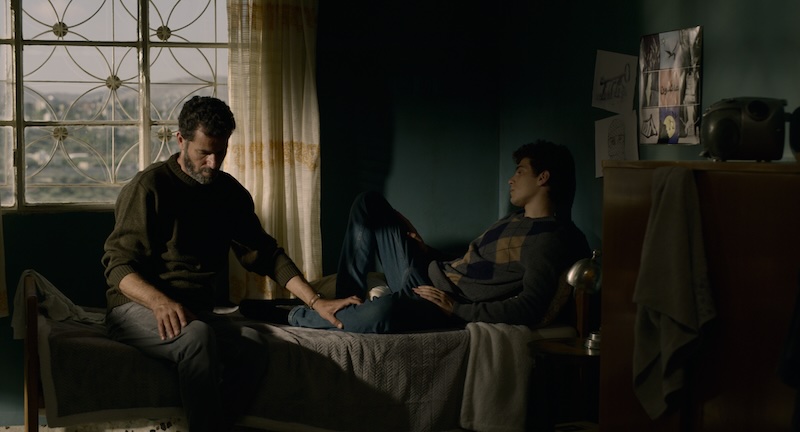
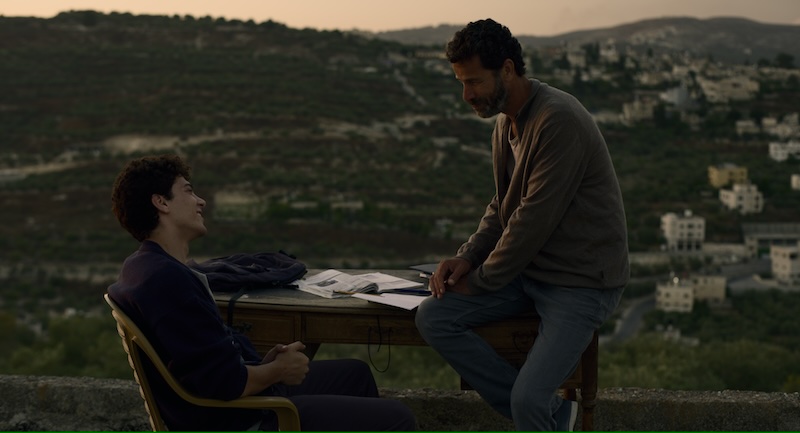
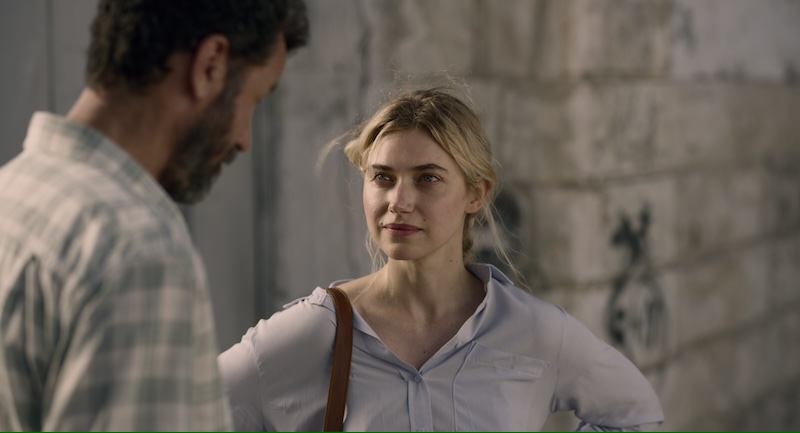
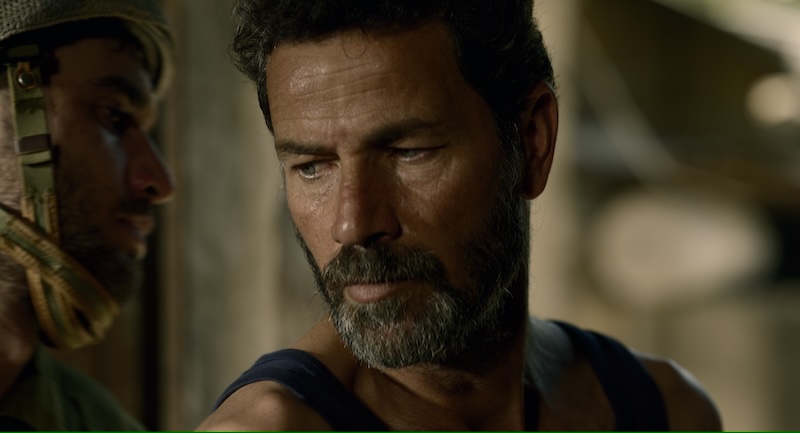
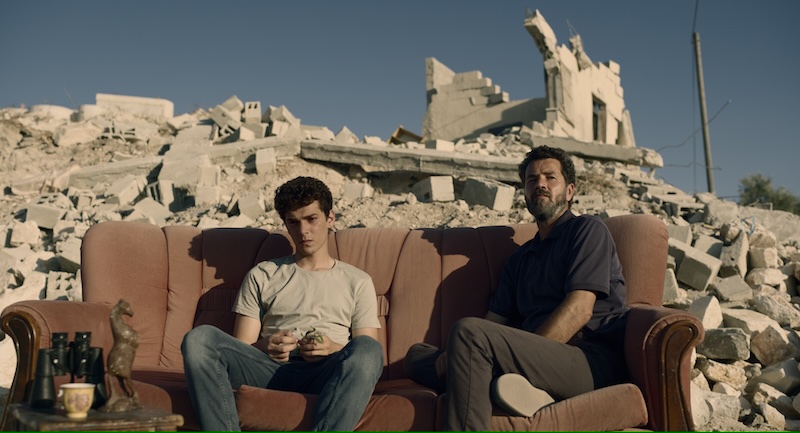
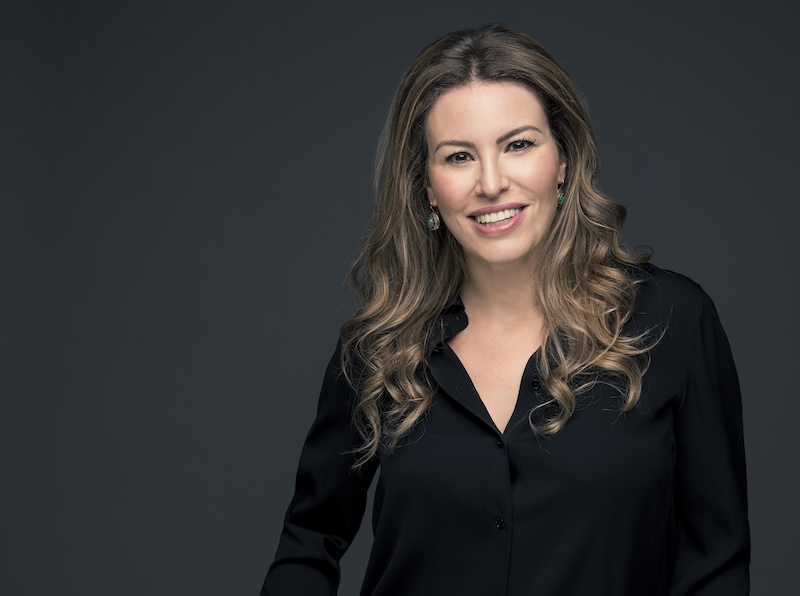







the_teacher_still 5 PNG
the_teacher_still 4 PNG 15mb
the_teacher_still 3 PNG 15Mb
the_teacher_still 2 PNG 15MB
the_teacher_still 1 png 12mb
FarahNabulsiStill4
For sure it’s just a natural result of the way I like to tell stories, but in the end I believe each storyteller is influenced sub-consciously by their own outlook on life, relationships, up-brining, personal belief system and experiences. I am a mother of five children, and someone pointed out to me recently that all my films so far, (except my very first one) seem to focus on the parent-child connection in some way or another, and I was blown away, because I hadn’t actually realised that – but it’s absolutely true.
In The Teacher specifically, the Father-Son relationship plays a significant role in the film. You could say it’s even the glue that holds the entire story together. The love of a parent and what they would be willing to do for their child, to cope with their loss, to get them back, or deal with guilt in relation to their child – is integral to everything that takes place, whether it be the Basem-Adam, Basem-Yusef or Simon-Nathaniel father-son relationships in the film.
As a mother myself, it’s this love for my own children, and that human dynamic and connection as a parent to them, that defines so much of who I am and speaks to so much of what I know and feel as a human being. There is no doubt that translates into who I am as a filmmaker.
As somebody born in raised in the UK with Palestinian heritage, how do you feel this duality has informed the sorts of themes you’re attracted to?
I am acutely aware that I have had the privilege of having one foot in the West and one foot in the Arab world, especially Palestine – and I think that has been part of influencing the themes I am attracted to and has served me in having my own unique approach to them and the way I explore them as a storyteller. That said, in terms of themes specifically that I am attracted to, it’s less about my cultural or ethnic background and more about wanting to make films that matter to me not just as a creative, but as a human being in whole. I like to explore themes and subjects that matter to me on a deep and personal level. I read an art critic who said: “We cannot make art without a sense of identity, but it is identity we seek in making art.” That resonated for me. I think it’s making films about things that interest me and matter to me, but at the same time I am figuring out who I am, both as a filmmaker and as a human being, and as I actually make my films I am also learning what interests and matters to me in the process as well.
Where does your creativity come from? Is there an organic process to evolving your ideas?
For me, the creative process is certainly more organic than it is structured. I am not the “sit down and write 3 hours every single day no matter what” kind of writer, filmmaker. Sometimes the ideas come gushing out during an exercise or yoga session, or while lying in bed trying to sleep, and I have an entire scene thought-out or a new twist in the story has emerged, or I’ve figured out how I want to shoot a particular scene, if I’m at that stage of the creative process, and I rush to write it down. Other times I might go days, even weeks when nothing is flowing, nothing is coming to me or even inspiring me. It seems to be peaks and troughs, floods and droughts for me. I think all artists also have an element of divine grace downloading through them and in some ways we are conduits. Pragmatically, I do keep notes though. Lots of notes.
Which elements within The Teacher do you hope audiences pay attention to most of all?
I think it would have to be the theme of Justice or Injustice. The idea that having no recourse to justice is quite literally one of the most painful things a person has to contend with in life. What is means when you or someone you love has been wronged or subjected to such cruelty, criminality, violence or oppression, and then having no recourse to justice. What that can do to an individual or to a whole community, is something I hope audiences will contemplate.
What can you tell us about what’s next for Farah Nabulsi?
I much prefer to hold my cards close to my chest and tend to refrain from talking about something until it’s well on its way to being made. But I have started working on a new screenplay, based on a story I had worked out during Covid times. It’s a story about identity and what one would be willing to risk to be able to achieve an ultimate dream. I really hope I’ll be able to direct it and see it through to that finish line.
Images: Provided
